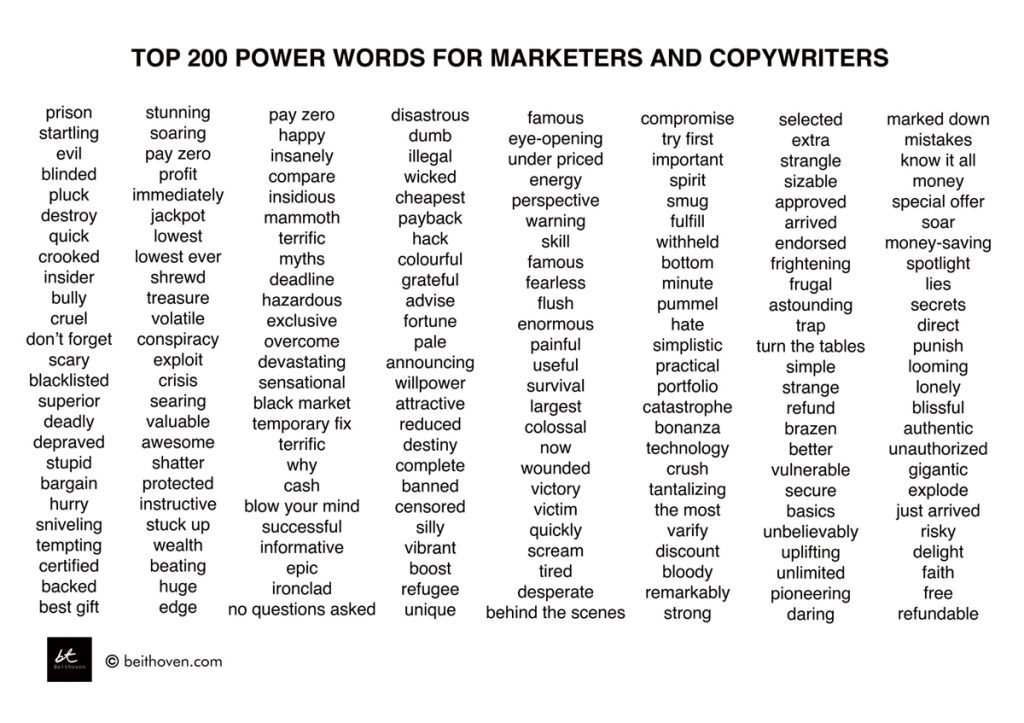The Psychology of Business Naming: How Words Influence Perception
When it comes to creating a business name, the words you choose can have a profound impact on how your brand is perceived by consumers. Research has shown that words can evoke emotions, create associations, and even influence behavior. This is because words are often linked to memories, experiences, and cultural norms, which can shape our perceptions and attitudes towards a brand.
For instance, words like “innovate,” “disrupt,” and “revolutionize” can convey a sense of cutting-edge thinking and forward momentum, while words like “trust,” “reliable,” and “secure” can evoke feelings of stability and dependability. On the other hand, words like “fun,” “playful,” and “quirky” can create a lighthearted and approachable tone.
When selecting words for your business name, it’s essential to consider the emotional and psychological impact they may have on your target audience. Ask yourself: What values and personality traits do I want my brand to convey? What emotions do I want to evoke in my customers? By carefully choosing words that align with your brand identity and values, you can create a powerful and memorable business name that resonates with your audience.
In fact, studies have shown that brands with names that evoke positive emotions and associations tend to have higher brand recognition, customer loyalty, and ultimately, revenue growth. This is why it’s crucial to invest time and effort into selecting the right words for your business name. By doing so, you can create a solid foundation for your brand’s identity and set yourself up for long-term success.
Some examples of companies that have successfully leveraged the power of words in their business names include Apple, which conveys innovation and sleek design, and Amazon, which evokes a sense of vastness and limitless possibility. These companies have demonstrated the importance of choosing words that accurately reflect their brand values and personality, and have reaped the rewards of increased brand recognition and customer loyalty.
By understanding the psychology of business naming and carefully selecting words that align with your brand identity, you can create a powerful and memorable business name that sets you apart from the competition and resonates with your target audience. In the next section, we’ll explore how to choose words that resonate with your target audience and create a lasting impression.
How to Choose Words that Resonate with Your Target Audience
Choosing words that resonate with your target audience is crucial for creating a business name that effectively communicates your brand’s values and mission. To achieve this, it’s essential to understand your audience’s needs, preferences, and behaviors. Here are some tips and strategies for selecting words that align with your business’s values, mission, and target audience:
1. Conduct market research: Gather data about your target audience, including their demographics, interests, and pain points. This information will help you identify the words and phrases that resonate with them.
2. Use word association techniques: Write down a list of words related to your business and ask others to associate them with other words. This exercise can help you identify patterns and connections that can inform your word choice.
3. Brainstorm with a team: Collaborate with colleagues, friends, or family members to generate a list of words that align with your business’s values and mission. This collective brainstorming can help you come up with innovative and creative ideas.
4. Analyze your competitors: Research your competitors’ business names and identify the words and phrases they use. This analysis can help you understand what works and what doesn’t in your industry.
5. Consider your brand’s tone and personality: Think about the tone and personality you want your brand to convey. Do you want to be seen as friendly and approachable, or professional and authoritative? Choose words that reflect this tone and personality.
By using these strategies, you can select words that resonate with your target audience and create a business name that effectively communicates your brand’s values and mission. Remember, the goal is to choose words that are both meaningful and memorable, and that will help you stand out in a crowded market.
For example, companies like Warby Parker and Dollar Shave Club have successfully used words that resonate with their target audience. Warby Parker’s name conveys a sense of style and sophistication, while Dollar Shave Club’s name emphasizes affordability and convenience. By choosing words that align with their brand’s values and mission, these companies have created business names that are both memorable and effective.
When selecting powerful words for business names, it’s essential to consider the emotional and psychological impact they may have on your target audience. By choosing words that resonate with your audience, you can create a business name that builds trust, establishes credibility, and ultimately drives sales.
The Power of Alliteration and Rhyme in Business Naming
Alliteration and rhyme are two powerful techniques that can make a business name more memorable and catchy. Alliteration refers to the repetition of initial consonant sounds, while rhyme refers to the repetition of similar sounds at the end of words. When used effectively, these techniques can create a business name that is both easy to remember and fun to say.
Examples of companies that have successfully used alliteration and rhyme in their business names include Coca-Cola, Google, and Facebook. These names are not only memorable but also easy to spell and pronounce. Additionally, alliteration and rhyme can help to create a brand identity that is both unique and recognizable.
One of the key benefits of using alliteration and rhyme in business naming is that it can create a sense of fun and playfulness. This can be particularly effective for companies that want to convey a lighthearted and approachable tone. For example, the company name “Snapchat” uses alliteration to create a fun and catchy sound.
Another benefit of using alliteration and rhyme is that it can help to create a sense of rhythm and flow. This can make a business name more memorable and easier to remember. For example, the company name “Dunkin’ Donuts” uses rhyme to create a catchy and memorable sound.
However, it’s worth noting that alliteration and rhyme should be used judiciously in business naming. Overusing these techniques can make a business name sound childish or unprofessional. Additionally, alliteration and rhyme should be used in conjunction with other techniques, such as word association and brainstorming, to create a business name that is both memorable and meaningful.
When using alliteration and rhyme in business naming, it’s also important to consider the target audience and the brand identity. For example, a company that wants to convey a serious and professional tone may not want to use alliteration and rhyme in their business name. On the other hand, a company that wants to convey a fun and playful tone may find that alliteration and rhyme are effective techniques for creating a memorable and catchy business name.
By incorporating alliteration and rhyme into your business naming strategy, you can create a powerful and memorable business name that resonates with your target audience. Remember to use these techniques judiciously and in conjunction with other techniques to create a business name that is both memorable and meaningful.
Words that Convey Innovation and Cutting-Edge Thinking
In today’s fast-paced business landscape, companies that convey a sense of innovation and cutting-edge thinking are often at the forefront of their industries. When it comes to choosing powerful words for business names, incorporating words that convey innovation and technology can be a highly effective strategy.
Words like “pioneer,” “revolution,” and “disrupt” can convey a sense of innovation and forward-thinking, while words like “tech,” “digital,” and “cyber” can emphasize a company’s focus on technology. Additionally, words like “labs,” “studio,” and “foundry” can suggest a company that is experimental and innovative.
Companies like Tesla, SpaceX, and Google have successfully incorporated words that convey innovation and cutting-edge thinking into their names. These names not only reflect the companies’ values and mission but also help to establish them as leaders in their respective industries.
When choosing words that convey innovation and cutting-edge thinking, it’s essential to consider the company’s values, mission, and target audience. For example, a company that wants to convey a sense of innovation and technology may want to use words like “AI,” “blockchain,” or “IoT” in their name.
However, it’s also important to avoid using words that are too generic or overused. For example, using the word “tech” in a company name may not be enough to convey a sense of innovation and cutting-edge thinking. Instead, companies should aim to use words that are unique and memorable, while also reflecting their values and mission.
By incorporating words that convey innovation and cutting-edge thinking into a business name, companies can establish themselves as leaders in their industries and attract customers who are looking for forward-thinking solutions. Remember to choose words that are unique, memorable, and reflective of the company’s values and mission.
Some examples of companies that have successfully used words that convey innovation and cutting-edge thinking in their names include:
– Tesla: Conveys a sense of innovation and forward-thinking in the electric vehicle industry.
– SpaceX: Emphasizes the company’s focus on space exploration and technology.
– Google: Suggests a company that is innovative and forward-thinking in the tech industry.
By using powerful words that convey innovation and cutting-edge thinking, companies can create a business name that is both memorable and effective.
Creating a Unique and Memorable Brand Identity
A unique and memorable brand identity is crucial for any business looking to stand out in a crowded market. When it comes to choosing powerful words for business names, creating a brand identity that is both unique and memorable is essential.
One of the most effective ways to create a unique and memorable brand identity is to use strategic word choice. This involves selecting words that are not only memorable but also reflective of the company’s values, mission, and target audience.
When choosing words for a business name, it’s essential to avoid clichés and overused words. These words may be easy to remember, but they can also make a business name seem generic and unoriginal. Instead, companies should aim to use words that are unique and creative, while also conveying the right message.
For example, companies like Apple and Amazon have created unique and memorable brand identities through their use of strategic word choice. These companies have chosen words that are not only memorable but also reflective of their values and mission.
Another effective way to create a unique and memorable brand identity is to use word combinations. This involves combining two or more words to create a unique and memorable business name. For example, companies like Facebook and LinkedIn have used word combinations to create unique and memorable brand identities.
When using word combinations, it’s essential to choose words that are not only memorable but also reflective of the company’s values and mission. This will help to create a brand identity that is both unique and memorable.
Some examples of companies that have successfully created unique and memorable brand identities through strategic word choice include:
– Apple: Created a unique and memorable brand identity through their use of the word “apple,” which is both memorable and reflective of the company’s values and mission.
– Amazon: Created a unique and memorable brand identity through their use of the word “amazon,” which is both memorable and reflective of the company’s values and mission.
– Facebook: Created a unique and memorable brand identity through their use of the word combination “face” and “book,” which is both memorable and reflective of the company’s values and mission.
By using strategic word choice and word combinations, companies can create a unique and memorable brand identity that sets them apart from their competitors.
Words that Evoke Emotions and Create Connections
Emotional words have the power to create connections with customers and build brand loyalty. When choosing powerful words for business names, it’s essential to consider the emotional impact of the words on the target audience.
Words that evoke emotions such as happiness, excitement, or nostalgia can create a positive association with the brand. For example, companies like Coca-Cola and Disney have used emotional words in their names to create a sense of nostalgia and happiness.
On the other hand, words that evoke emotions such as trust, reliability, or security can create a sense of confidence and loyalty. For example, companies like IBM and Microsoft have used emotional words in their names to create a sense of trust and reliability.
When using emotional words in business names, it’s essential to consider the target audience and the brand’s values and mission. For example, a company that wants to create a sense of excitement and energy may use words like “ignite” or “spark” in their name.
Some examples of companies that have successfully used emotional words in their names include:
– Coca-Cola: Created a sense of nostalgia and happiness with their name, which is associated with memories of childhood and summertime.
– Disney: Created a sense of magic and wonder with their name, which is associated with fantasy and adventure.
– IBM: Created a sense of trust and reliability with their name, which is associated with stability and expertise.
By using emotional words in business names, companies can create a connection with their target audience and build brand loyalty. Remember to choose words that are authentic and reflective of the brand’s values and mission.
When selecting emotional words for business names, it’s also essential to consider the tone and personality of the brand. For example, a company that wants to create a sense of fun and playfulness may use words like “fun” or “play” in their name.
By using emotional words in business names, companies can create a powerful and memorable brand identity that resonates with their target audience.
Common Pitfalls to Avoid in Business Naming
When choosing powerful words for business names, it’s essential to avoid common pitfalls that can make a name ineffective or even detrimental to the brand. Here are some common mistakes to avoid:
1. Using words that are too generic: Avoid using words that are too common or generic, as they may not be memorable or distinctive enough to stand out in a crowded market.
2. Using words that are too long or too difficult to spell: Avoid using words that are too long or too difficult to spell, as they may be hard for customers to remember or pronounce.
3. Using words that are too similar to existing brands: Avoid using words that are too similar to existing brands, as they may cause confusion or dilute the brand’s identity.
4. Using words that have negative connotations: Avoid using words that have negative connotations or associations, as they may harm the brand’s reputation or image.
5. Not considering the target audience: Avoid choosing words that may not resonate with the target audience or may be perceived as insensitive or off-putting.
By avoiding these common pitfalls, businesses can create a powerful and effective business name that resonates with their target audience and helps to establish a strong brand identity.
Some examples of companies that have successfully avoided common pitfalls in business naming include:
– Google: Avoided using a generic or common word, instead choosing a unique and memorable name that has become synonymous with search and innovation.
– Amazon: Avoided using a word that is too long or too difficult to spell, instead choosing a name that is easy to remember and pronounce.
– Facebook: Avoided using a word that is too similar to existing brands, instead choosing a name that is distinctive and memorable.
By being mindful of these common pitfalls, businesses can create a powerful and effective business name that helps to establish a strong brand identity and resonates with their target audience.
Putting it all Together: Crafting a Powerful Business Name
Crafting a powerful business name requires careful consideration of several factors, including the target audience, brand values, and emotional resonance. By incorporating the strategies and techniques discussed throughout this article, businesses can create a name that resonates with their target audience and helps to establish a strong brand identity.
Here is a step-by-step guide to crafting a powerful business name:
1. Define your target audience and brand values: Identify the key characteristics of your target audience and the values that your brand represents.
2. Brainstorm a list of words: Use techniques such as word association and brainstorming to generate a list of words that align with your brand values and resonate with your target audience.
3. Evaluate the words: Assess each word on your list for its emotional resonance, memorability, and uniqueness.
4. Refine your list: Narrow down your list to the top 5-10 words that best capture the essence of your brand and resonate with your target audience.
5. Test your words: Test your words with a focus group or survey to ensure that they resonate with your target audience and align with your brand values.
6. Finalize your name: Choose the word or combination of words that best represents your brand and resonates with your target audience.
By following these steps, businesses can create a powerful business name that helps to establish a strong brand identity and resonates with their target audience.
Remember, a powerful business name is just the first step in building a strong brand identity. Consistency and creativity are key to making your brand stand out in a crowded market.
By incorporating the strategies and techniques discussed throughout this article, businesses can create a powerful business name that resonates with their target audience and helps to establish a strong brand identity.







